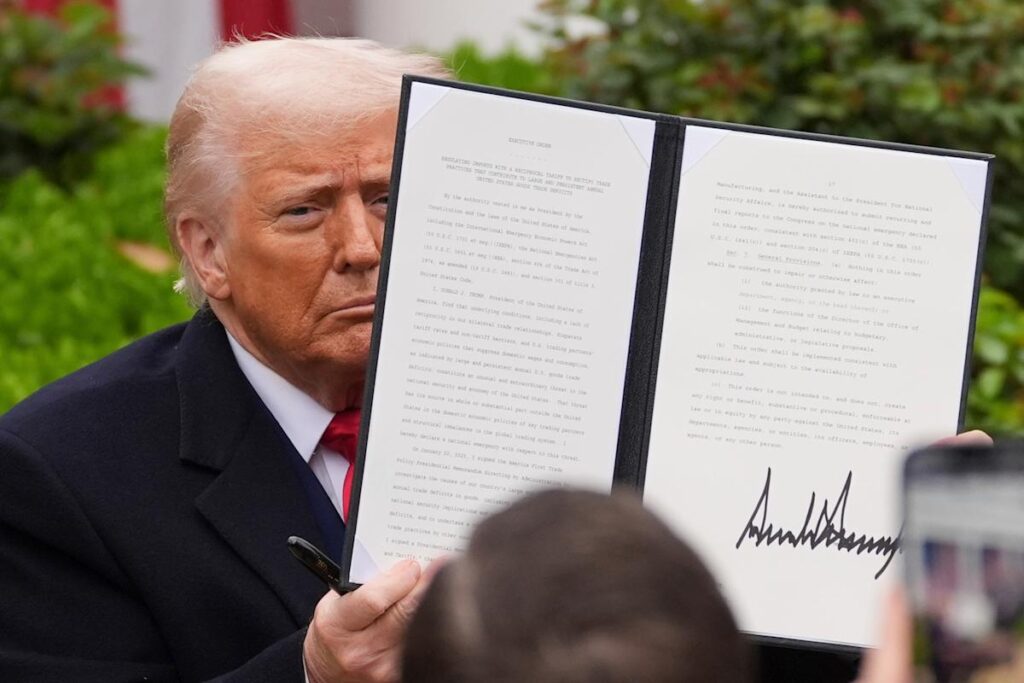Nvidia and Chip Stocks Decline Amid New Tariff Announcements
Nvidia (NVDA), TSMC (TSM), and various other semiconductor companies experienced a notable drop in their stock prices on Thursday. This decline follows President Trump’s declaration of sweeping reciprocal tariffs that are poised to impact the semiconductor supply chain significantly.
Impact on Semiconductor Stocks
Nvidia shares fell by over 5%, while Advanced Micro Devices (AMD) saw a decline of approximately 4%. Broadcom (AVGO) suffered a loss of around 7%, alongside Micron (MU), which also fell by 7%. Micron is notably a supplier of memory chips crucial for Nvidia’s graphics processing units (GPUs).
Taiwanese Chipmaker TSMC’s Response
TSMC, a leading Taiwanese contract chip manufacturer responsible for producing advanced semiconductors for major companies like Nvidia and Apple (AAPL), saw its stock decrease by about 5%. The tariffs will affect the pricing dynamics in a market already under pressure from international competition.
Details of the Tariff Announcement
In a much-anticipated announcement, President Trump detailed that reciprocal tariffs would be effective starting April 9. Until that date, countries will incur a 10% worldwide base tariff. This includes significantly increased rates of 34% on imports from China and 32% from Taiwan. The total tariff rate on Chinese imports, including existing tariffs, would reach a daunting 54%.
Potential Ramifications for AI Chip Demand
The repercussions of these tariffs could extend to the AI chip market, especially as China, Vietnam, and Taiwan are among the largest suppliers of servers to the United States, including those equipped with Nvidia’s GPUs. Increased costs due to tariffs may deter demand for these semiconductor products in the AI sector, pivotal for technological advancements.
Manufacturing Dynamics and Future Outlook
Trump highlighted the critical issue of semiconductor manufacturing, emphasizing that Taiwan’s dominance has drastically shifted the landscape. As the leading supplier for American tech giants like Nvidia and AMD, TSMC’s operations in Taiwan are vital for the industry. While American companies have often outsourced manufacturing to manage costs, the uncertainty surrounding tariffs raises questions about the future of domestic chip production.
Conclusion: The Future of Semiconductor Stocks
The current state of Nvidia and its peers in the semiconductor sector reflects the complexities of international trade and domestic manufacturing policies. Despite the immediate negative reactions in the stock market, analysts, including Truist’s William Stein, suggested that the impact on Nvidia and other AI chip manufacturers might be limited due to their integral role in the AI development arena. As the market navigates these transitions, investors will need to stay informed about policy changes and their effects on the broader landscape of semiconductor stocks.



